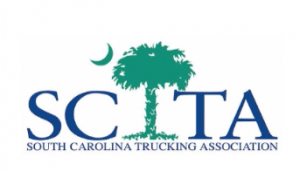Trucking Association supports fuel-tax hike, regular review of DOT
January 13, 2016The President & CEO of the South Carolina Trucking Association supports an increase in the state’s portion of the gasoline and diesel tax to improve the condition and safety of the state’s roads and bridges.
Rick Todd, the group’s CEO, has watched and studied the issue for over 37 years, and says a long-term funding solution “is easy, right in front of our policy makers, and the time is ripe.”
“Our road system is aging and strained to the point of crisis due to negligent under-funding, and our industrial, tourism and population growth has made much of it inadequate and unsafe.” Todd says the sense of urgency cannot be dismissed. “It takes years before we can enjoy roadway improvements, because of the legal, regulatory and construction processes involved.” “The longer we wait to act, literally, the longer we’ll have to deal with today’s traffic conditions.”
The trucking group represents fleets and their drivers who operate increasingly in an interstate environment. They claim that other states are far ahead of South Carolina in terms of investment in highway infrastructure. “Just look at what’s happening right across our borders. Georgia and North Carolina both have fuel taxes which are effectively double ours. You get what you pay for.” Todd says that other states have found the will to get it done, and they’ve accepted that they have to tax themselves, and not expect that they can export the bulk of the burden.
Todd says the reason trucking operations support adequate, but competitive fuel tax rates is because the systems are in place to efficiently collect user-fees from commercial fleets. Truck fleets pay each state through which they operate a fair-share of both fuel taxes and registration fees, and increasingly, some form of property tax to pay for the use of roadways. “There is no free ride for medium and large truckers coming through South Carolina.”
“The current fuel tax collection system works, it just simply needs adjustment to restore lost buying power and to provide the money to fix and improve what we’ve got,” Todd says.
Todd says he understands the political challenges, but firmly asserts the opposition is a vocal minority, most of whom are inspired by out-of-state-funded groups which use misleading rhetoric, demagogue the gas tax and champion dubious reforms in order to slow the process. “If they really cared about South Carolina’s economic competitiveness and quality of life, they’d get very specific about what they say needs to be done, then join-in to be a positive force for better government. Right now they’re just disoriented, negative noise.”
On matters like whether taxes must be cut to offset any increases, Todd says “it would be nice, but that’s inside-baseball politics for the leaders to sort out.”
And on the issue of reform of the Department of Transportation and the State Infrastructure Bank, Todd says that reforming state agencies is something that should be routinely considered by any legislature. “We should expect good governing and prudent management to make routine review and appropriate restructuring a permanent part of the oversight process. But because they need regular review doesn’t mean that wholesale restructuring every few years is necessarily a good thing,” he said.
Todd does support the Governor ultimately being held accountable for the agency’s operations, but also believes there needs to be some way for regional input from the citizens at-large. “The DOT and we all benefit from the agency having some balance of power, influence and perspective.” But Todd asserts that ultimately one person must be held responsible. “If a group’s in charge, then nobody is in charge.”
Citizen Benefits of a Safe & Efficient Road System
- Smoother roads with fewer potholes.
- Additional lane capacity where truly needed relieves congestion and provides alternatives in the event of accidents or uneven traffic flow.
- Interchanges capable of handling the level of traffic on the roads today.
- Roadways with fresh reflective paint and striping, particularly on our narrow, rural roads help to show the way when it’s dark or rainy.
- Signs are more visible to drivers.
- Wider shoulders allow for safe pullovers and provide a safety cushion in case of a lane departure or sudden swerve.
- Repaired and upgraded bridges make for fewer detours and safer routes for school buses, emergency vehicles and commerce for local industries.
- Improvements save lives and make it much easier for all drivers to share the road.
- Improves the flow of commerce, so that our state can remain competitive with our sister states in this global economy.
- Less stress, less waste and pollution, and better quality of life.
The South Carolina Trucking Association is a non-profit trade association representing all segments of the trucking industry. Organized in the 1932, SCTA serves the transportation needs of the state, region and nation by providing educational opportunities, compiling and distributing essential information and conducting aggressive programs of advocacy.














